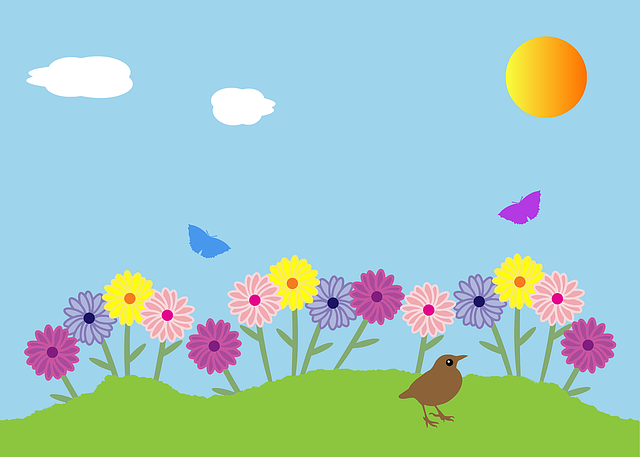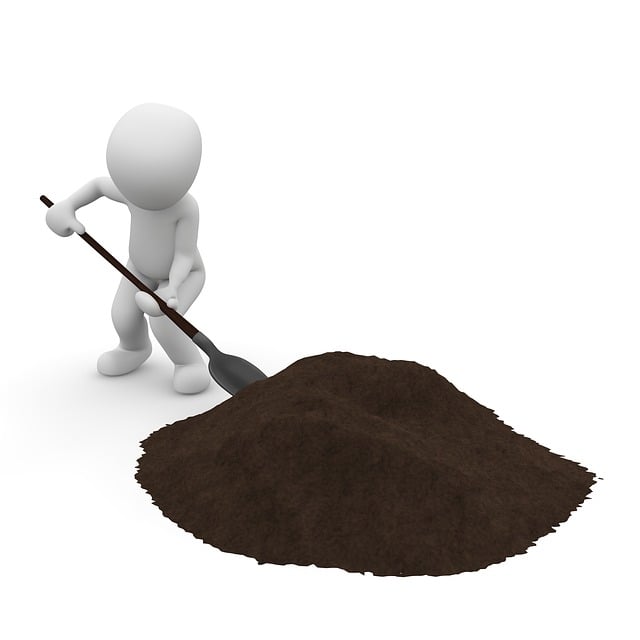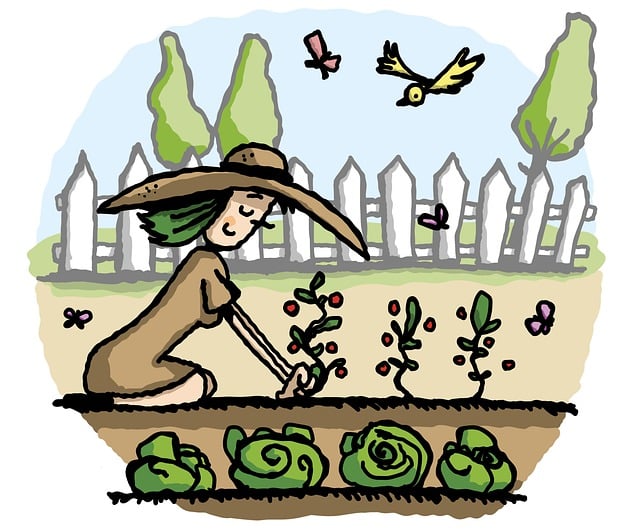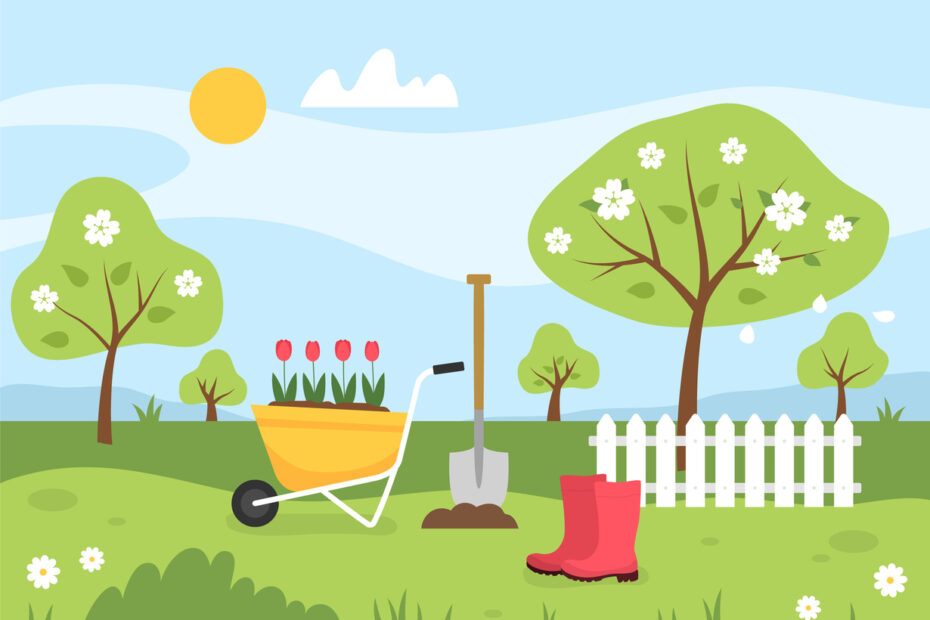This post is going to stretch a metaphor, possibly past breaking point! Stick with it…
Daffodils are out. Trees are dressed in blossom. Spring is gradually springing. The promise of new growth and brighter days always has me feeling optimistic, and this year it has triggered some thinking about business analysis professionals and the wider BA ecosystem. This post is an attempt to crystalise thoughts thoughts, and I’m reaching for a metaphor to do that.
Things are going to get a little vague and abstract. Please bear with me.
Business analysis is a garden.
What do I mean by that?

The BA ecosystem is a collection of individuals practising business analysis. We’ve got new BAs, mid-career BAs, and experienced veterans. Permies, contractors, and consultants. There are thought leaders and experts. Everyone is learning. Some people are teaching. Some people are creating frameworks or certification standards. A few write books. Our interactions within organisations and with other BAs shape how we do our jobs, and what those that come after us will find.
The continued success of plants in a garden depends on the other plants, the soil, the weather, and the talents of a diligent gardener.
I believe business analysis professionals can – and should – strive to play every role in this ecosystem. For the business analysis garden to flourish, we need to consciously and continually embrace our multiple roles.
It’s fine to be a plant
I talk to loads of business analysts (and plenty of hoping-to-be business analysts). Everyone wants to grow and develop. BAs want new and better skills. They want more experience. They want to feel vigorous. They want to reach the sunshine.

Some plants are natural climbers, pulling themselves skywards with grasping tendrils. Some plants devote their energy into growing succulent fruits. Others are all about the showy flowers (and fragrant scents). All of these are ok.
Like plants, we draw on “nutrients” from the BA world, absorbing the wisdom of those that went before, using the learning of others to develop ourselves. We seek out advice of thought leaders and experts. We want the free guidance from those that came before. We’ll use that template or tool we found. We’ll read the books, attend the webinars, and pursue the certifications.
These things are all fine and natural. We want to succeed, and it’s ok to be ambitious. But a rich, fruitful, and sustainable garden is about far more than the immediate needs of individual plants.
Become fertile soil
For things to grow well, they need the best soil.
Our work as BAs and our engagement with our fellow BAs both leave behind some important products: experiences, learnings and insights, artefacts and templates. These all form a compost, breaking down to become the earth in which future business analysis professionals seedlings will be trying to grow.
We need to leave behind a soil that is rich in nutrients, well-drained, and free from weeds.
That means being conscious about what we create for those that come after us. Don’t treat a project as if it’s the last project anyone will ever do. Capture the learnings. Tidy up useful templates. Make sure the good ideas become regular practice. Tweak the job description. Champion investment in future BAs.
To really stretch the metaphor, perhaps you could also be worm helping to churn things up. Too far?

Yes, I know you can grow some plants without soil these days. Feel free to get creative pursuing the metaphor in that direction!
Make helpful weather
Rain, wind, sunshine, and frost. All can help or hinder a garden. The understanding of business analysis, and the esteem in which it is held, become weather for our profession and practice. We need to proactively craft our brand and market our value proposition.
Driving better understanding of business analysis as a set of vital skills is key – within our organisations, and more widely among business leaders, other change professionals, educational institutions, governments, and people in general. People need to know what a business analysis practitioner does, and know that they can expect high standards.
This isn’t going to happen by magic – we have to choose and pursue actions ourselves to achieve better understanding and recognition of business analysis.
Maybe it’s educating the leaders in your organisation. Perhaps we need to consider a different name for what we do. It could mean pushing for a dedicated chartered status for our profession. Fighting for BAs to get involved earlier in change initiatives. Or carving out a clearer analysis space in business change and product development frameworks. Perhaps it just means honing your 30-second-elevator-pitch on what a BA does so next time someone asks you don’t end up panicked and flustered!
We need to continually drive standards. That means further refinement (and recognition) of BA certifications. It means not tolerating shoddy practice. Support apprenticeships. Create roles for expert BAs. Write better job ads.
We must celebrate good business analysis publicly. Demonstrate how it creates better outcomes with less pain.

By shaping how others understand and regard business analysis, our BA garden is far more likely to flourish!
Be a conscientious and generous gardener
This is probably the most important point for me. I want to encourage business analysis professionals to get active in attending to the BA profession – in their organisation and beyond. Put on those wellies. Wear gloves if you must.

Have a vision. Identify what’s needed in different parts of the garden. Encourage diversity. Water where it’s needed. Weed. Encourage pollinators. Plant bulbs early. Re-pot things. Ensure things get the right amount of sunlight. Protect delicate seedlings from frost. Prune. Harvest.
This might mean spending more time talking to BAs in other organisations (actually, that’s a must). It could involve being brave enough to talk to your peers about things you’ve learned. It might mean engaging with BA content on LinkedIn – even leaving a comment can be huge! It could be giving someone feedback on their blog post, or sharing a great find with your colleagues. It could be publicising a new technique you’ve come up with. You could – probably should – mentor someone! Get involved with (or start) a BA community of practice in your organisation.
Gardening is labour. You get wet and muddy. But failing to garden methodically and consistently can leave you with a desert or a jungle. Or even worse, with Astroturf.
Why does this matter?
I think our business analysis garden faces a number of major challenges.
I know from my experience working within the business analysis community that there are plenty of BAs (often mid-career) that just don’t get involved. Either they don’t feel the BA community offers them anything, or they’re struggling to access what they need. Imposter syndrome is fuelled by isolation. As a profession, we’re missing out on a huge amount of experience – and we’re not making that rich soil we need.
One group that is fully engaged is new-and-aspiring BAs! There are many people looking to get into business analysis, and they are hungry for knowledge. I know I receive plenty requests for advice, requests to review CVs, and requests for sharing any job openings I’m aware of. We get loads of new BAs attending IIBA UK’s events. That’s a lot of plants seeking to grow. The shift from business analysis being something people “fell into” to becoming a conscious career choice is a major one. The challenges for recruiters in finding good talent right now is a topic deserving a separate post…
I frequently make the complaint that business analysis is squeezed by other roles and practices with sharper elbows; BAs struggle to carve out their space in project frameworks or product development practices. Louder voices and a lack of understanding are dictating what business analysis should be. Our brand isn’t clear. We don’t have the best weather.
There is a great BA community out there. I have a network of fellow BAs here in Bristol, across the UK, and globally. And there are business analysis experts doing great stuff – setting standards, generating ideas, and sharing learning. There’s a lot of a great people and content floating around on LinkedIn. Bodies like IIBA are hugely important. Our community needs people to give time and energy: creating content, hosting events, connecting people. Even just showing up and supporting is hugely valuable.
With the challenges our garden faces, we need people to be more than just plants. Please, roll up your sleeves.
